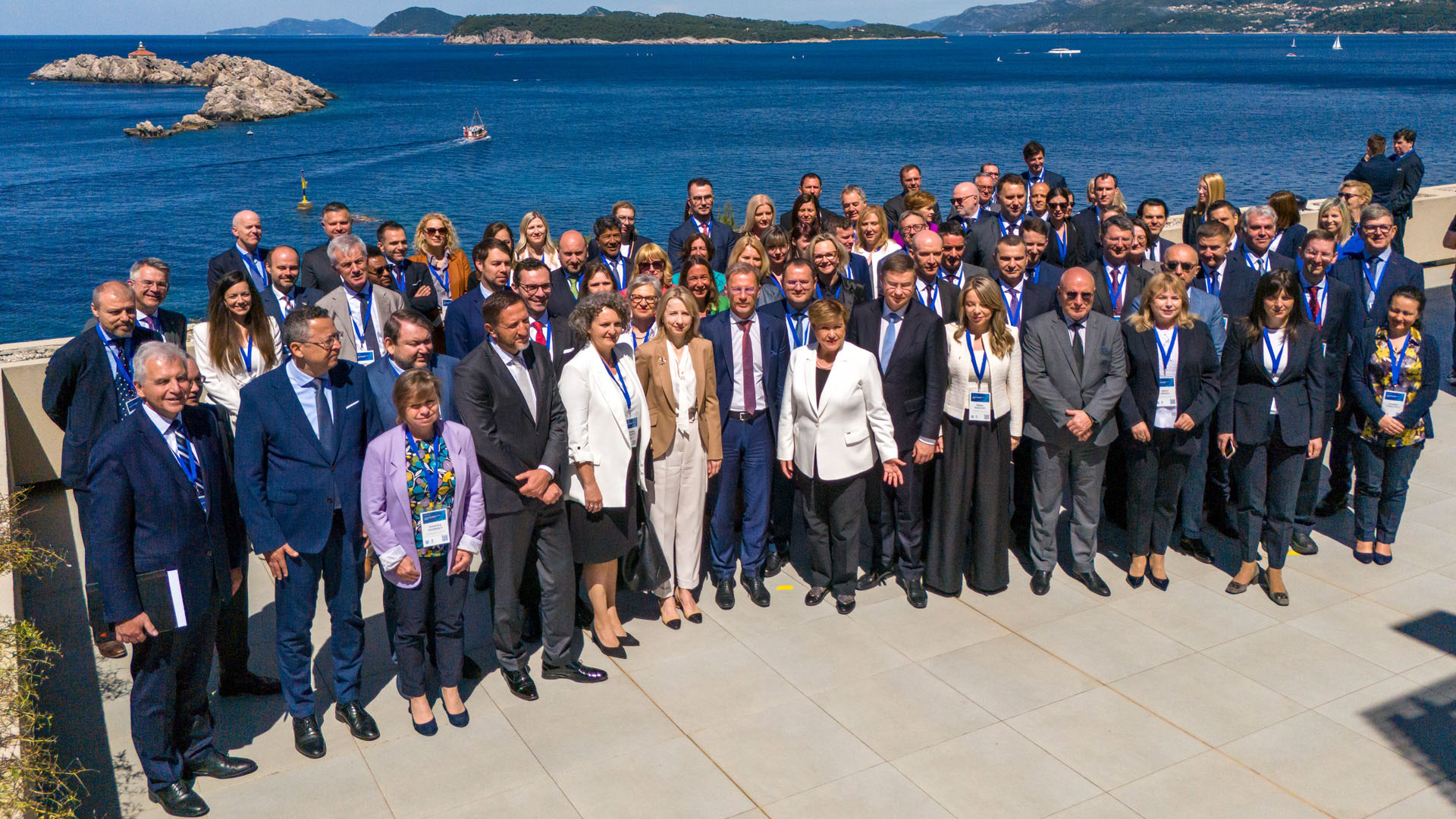
The two-day international conference “Growth and Resilience of Central, Eastern and Southeastern European Countries in a Fragmented World”, organised jointly by the Croatian National Bank (CNB) and the International Monetary Fund (IMF) ended today in Dubrovnik. This is the fourth time the CNB and the IMF have teamed up to co-host such a conference.
The conference was attended by leading representatives of international institutions, central banks, governments, academia and the business sector. It provided an opportunity to discuss challenges and opportunities for Central, Eastern and Southeastern European (CESEE) countries in the context of global economic and political fragmentation, the need to strengthen the resilience of macroeconomic policies, the role of CESEE countries in the European single market and structural reform priorities.
The key speakers and panellists at the conference were Kristalina Georgieva, Managing Director of the International Monetary Fund, Boris Vujčić, Governor of the Croatian National Bank, and Valdis Dombrovskis, Commissioner of the European Commission.
Kristalina Georgieva stated: "Faced with structural headwinds and a more volatile external environment, domestic reforms present a unique opportunity to unlock the region's full potential and foster strength and resilience. Through the IMF’s surveillance and technical assistance, we are committed to supporting the CESEE region to unlock its growth potential. By acting decisively, we can transform the current challenges into opportunities and forge a brighter future for the region".
Governor Vujčić noted: "The reshaping of global value chains and re-industrialization in Europe will not happen evenly. The CESEE region must actively define its role — within the EU and beyond — to ensure it is not sidelined in these processes. It means accelerating digital transformation, advancing institutional reforms, and investing in the skills and capabilities needed to compete in high-value sectors. It also means strengthening the region’s ability to withstand shocks: from diversifying energy sources and modernizing infrastructure to building strategic reserves and ensuring robust public institutions".
During two days of the conference, expert panels and roundtables were held to discuss the importance of continuing reforms, strengthening fiscal space, adapting to the new global realities and investing in innovation and education as key prerequisites for sustainable growth and resilience of the region.
The panel entitled “Macroeconomic Policies for Growth and Resilience in a Fragmented World” focused on the challenges posed by the fragmentation of the global economy to macroeconomic policies in CESEE countries. The panellists discussed how to preserve fiscal sustainability and resilience to shocks, especially in the context of limited fiscal space and growing financing needs related to climate and security policies. Account was taken of the lessons from recent inflationary shocks and the optimal combination of monetary and fiscal policies to support sustainable growth.
Participants in the panel “Navigating Fragmentation: the Role of the CESEE Region in the Single Market" focused on the impact of economic and political fragmentation on the position of CESEE countries within the European single market. They analysed how changes in trade and investment flows, rising energy costs and the weakening of the industrial base affect the region’s economic model. Particular emphasis was placed on the reforms needed to strengthen competitiveness and the completion of the single market agenda.
“Strengthening Dynamics through Domestic Structural Reforms” was the name of the panel which focused on the need for a new wave of structural reforms in CESEE countries. The panel participants paid particular attention to analysing regulatory barriers, strengthening institutions and infrastructure and opening up services markets. They also discussed the priority areas of reforms, synergies with reforms at the EU level and the preconditions for their political and operational implementation.
At the end of the conference, in his concluding remarks, the CNB Governor highlighted the need for joint action and exchange of experience in order for CESEE countries to successfully respond to the challenges of an increasingly fragmented global environment.
Introductory remarks by Governor Boris Vujčić (video)
Introductory remarks by Governor Vujčić at the HNB-IMF international conference
